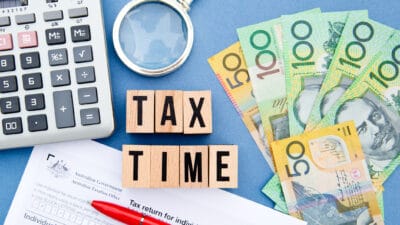Ah, debt… Whether it's a personal loan, car payments, a credit card, mortgage or HECs, chances are most of us owe money to someone (or something) right now.
Debt is a normal part of life. Saying that, it is certainly better to have some debts against your name than others. It is generally accepted, for example, that having a HECS debt is a relatively beneficial loan to hold.
It is obtained by paying for university or TAFE qualifications that (hopefully) expand your earnings capacity for later life. And since the interest on HECS debts only rises alongside the rate of inflation, the benefits usually far outweigh the costs of incurring these debts.
It's a similar story with a mortgage. Sure, mortgage interest rates are typically far higher than inflation. However, you are paying off an asset that usually rises in value over time. As such, those with a mortgage usually emerge with a far stronger financial position when they finally pay off their loan.
We can't say the same for a car loan. In this scenario, you are paying interest on an asset that is probably depreciating in value while you own it.
Credit cards and personal loans are even worse, as they are unsecured loans that are almost exclusively used for personal consumption.
So, we can conclude that holding debts can give Australians a financial boost or weigh on our economic fortunes, depending on the nature of the debts in question.
But just how much debt does the average Australian hold? That's what we'll be exploring next.
How does your debt compare to the average Aussie?
A recent report from KPMG dives into this question.
The report found that, among the different generations, Gen X (at an average age of 51) and Millennials (35) are currently carrying the highest cumulative debt loads. The average Gen Xer has a loan balance of $448,000, while the typical Millennial owes an average of $410,000. The report concluded that these figures were largely "driven by home loans."
In contrast, the average Baby Boomer (69) had an average loan balance of $82,000. The youngest adult generation, Gen Z (20), had an average debt of $49,000.
Terry Rawnsley, an urban economist at KPMG, argues that the former situation can be explained by Baby Boomers "deleveraging in preparation for retirement". In contrast, Gen Z's loans typically reflect "HECS and credit card debt".
Meanwhile, Rawnsley concluded that "high levels of debt among Gen X and Millennials point to significant financial obligations, such as mortgages and HECS debts".
Despite all of these statistics, the average net wealth (assets minus debts) of your typical Australian is likely to be determined purely by age. My Fool colleague Zach dove into this question today. He found that Baby Boomers and Gen Xers were the wealthiest Australian generations. These generations currently have an average wealth per person of $2.31 million and $1.88 million, respectively.
Meanwhile, Millennials and Gen Z hold an average net wealth of $757,000 and $96,000, respectively.
This just goes to show that debt can help build your long-term wealth if you use it correctly.









